The SU carburetor
and no, it’s not only setting the fueling screw right… the order of arrangement in
“Pile ’em High, Sell ’em Cheap”
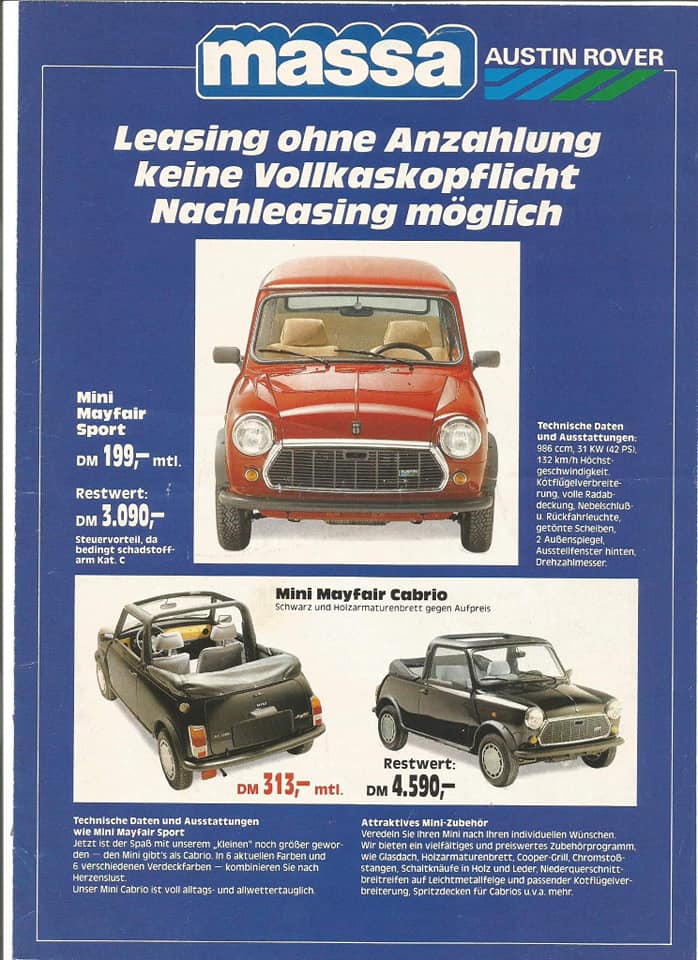
Introduction
after the 70’s a lot of the market for Rover cars and mainly the Mini Classic shifted towards Renault or Fiat thanks to their better and bigger dealerships. To change this Austin Rover started a partnership with MASSA, a kind of superstore for all kinds of cars under one roof. The collaboration gave the Germans a lot of creative renamings and special editions, as well as massive discounts and leasing options!
What is MASSA and How did the venue started?
“MASSA Motor” was a hypermarket location that housed several dedicated car showrooms and service facilities in a single building. By 1984, there were 27 of these hypermarket locations scattered across West Germany, which was still divided into East and West Germany at the time.
West Germany had always been a weak market for British Leyland and its predecessor, BMC (former Austin Rover). In the early 1970s, sales exceeded 20,000 units, primarily Minis. However, by 1980, sales had plummeted to around 4,000 units per year, which was only one-sixth of their sales volume in France or Italy.
To address this decline, British Leyland started a partnership with the hypermarket chain MASSA in March 1984, aiming to boost their car sales. In the first year of this partnership, they sold 4,000 cars through MASSA, matching their total sales volume in West Germany for the entire year of 1983.
Special editions
The venture included various exclusive offerings such as cabriolet conversions of the Mini and the Metro by Leiningen & Hammel (L&H). Also, the limited edition called “Mini Masters” in 1987 was a hit, which was very similar to the British Mini Advantage. Creative renaming of some models was also part of their strategy. For example, we have the limited edition “Mini Masters” in 1987 which was (almost) the same as the British “Mini Advantage.”
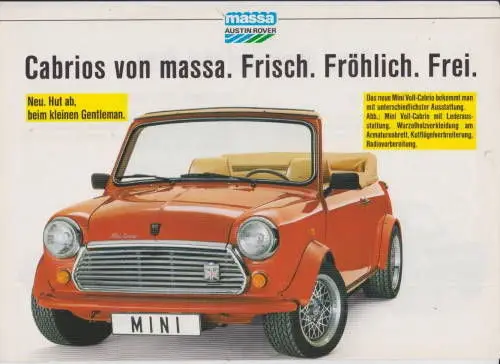

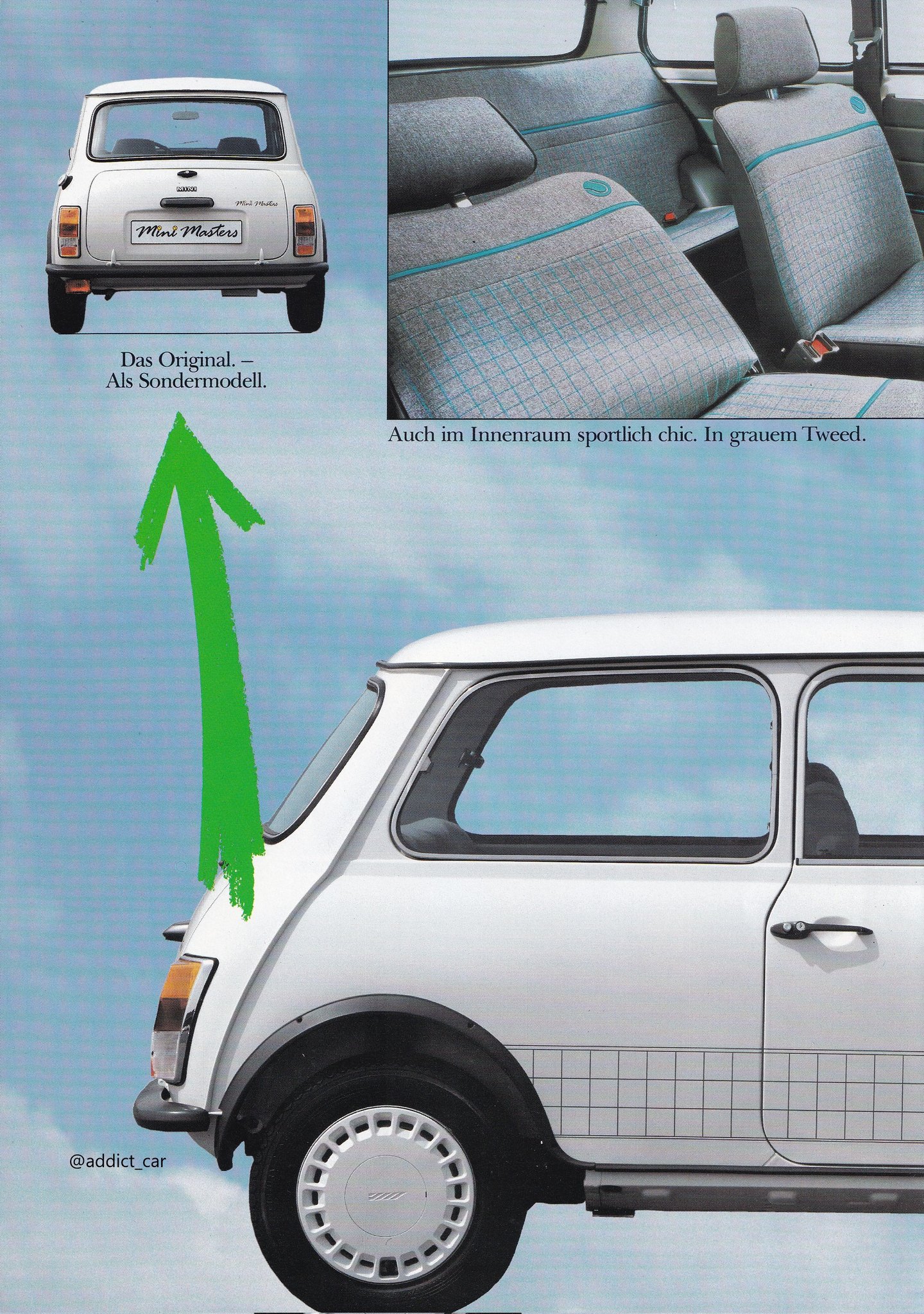
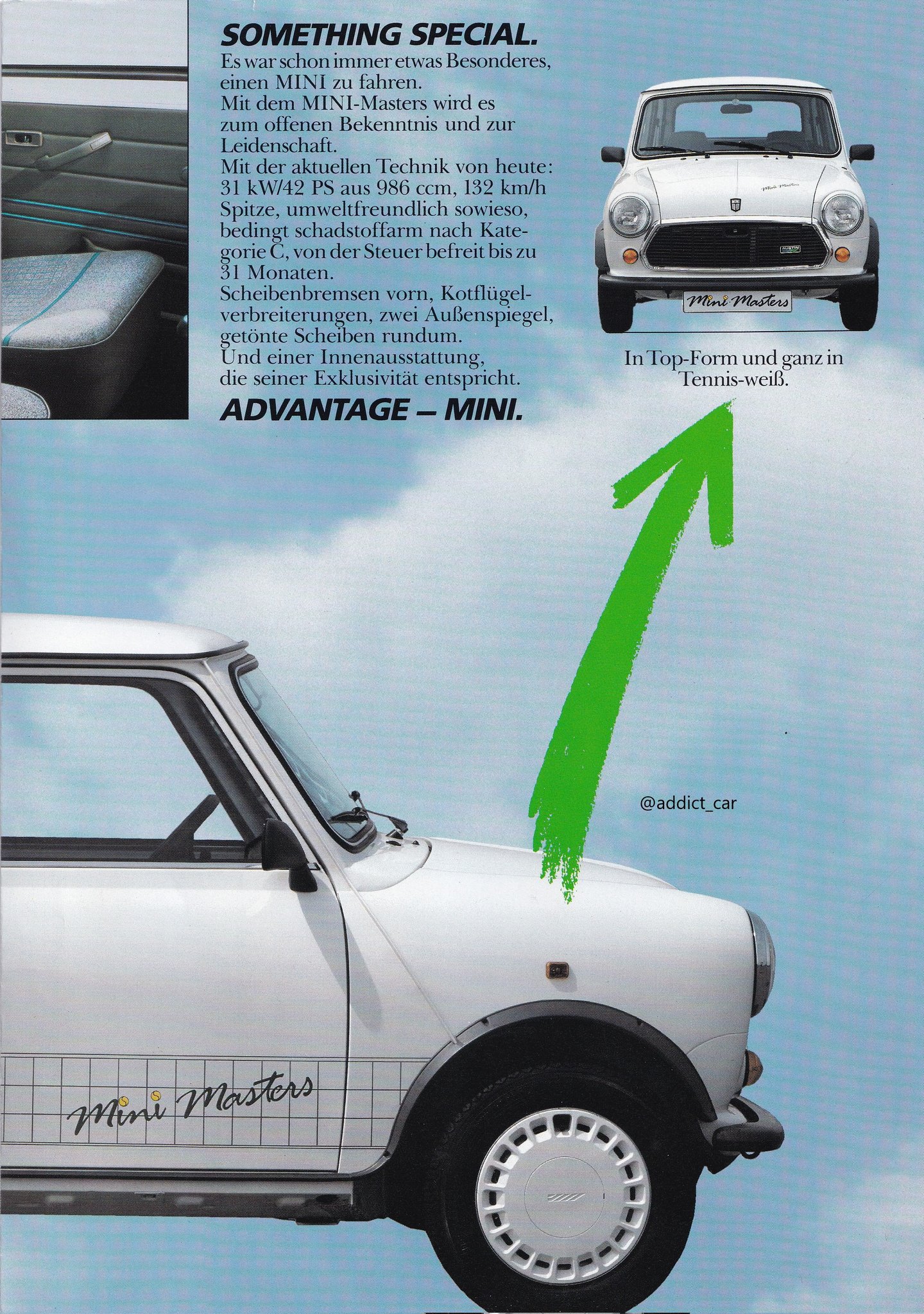
The controversy
This distribution approach was not without controversy. Austin Rover had little to lose in Germany, where their sales were low in the early ’80s, but the existing 200 German dealers were unhappy. Despite their concerns, Rover continued and the venture with MASSA doubled Austin Rover’s sales in Germany to 8,000 units. The other dealers were suspicions that Massa was receiving preferential terms, especially since the scheme launched with 300 specially priced Minis and Metros as “loss leaders” to attract customers. Even after this, the new Montego 1.6HL appeared in the Massa price list at a price more than £2,000 cheaper than in Britain, raising the eyebrows even further.
The Final Boost
The Massa collaboration provided some improvement, but the most significant boost came after BMW purchased Rover in 1994. BMW encouraged its German dealers to add the Rover franchise, and sales to BMW employees through a discount scheme helped drive sales up to 32,000 units by 1997. By this time, the hypermarket chain link-up, which had evolved into Duplo, had ended.
and no, it’s not only setting the fueling screw right… the order of arrangement in
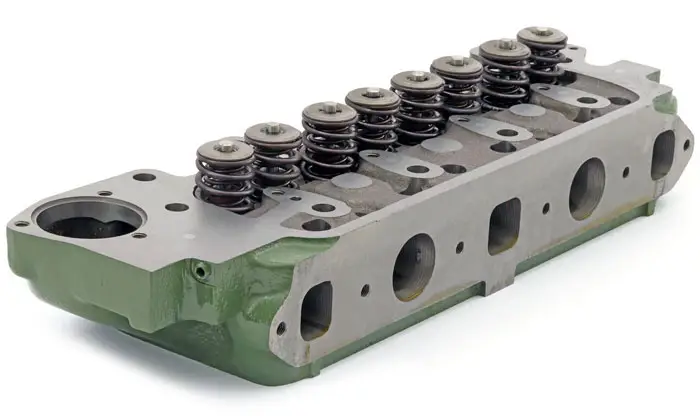
This table provides detailed specifications to identify various Mini accelaration performance, including what kind of
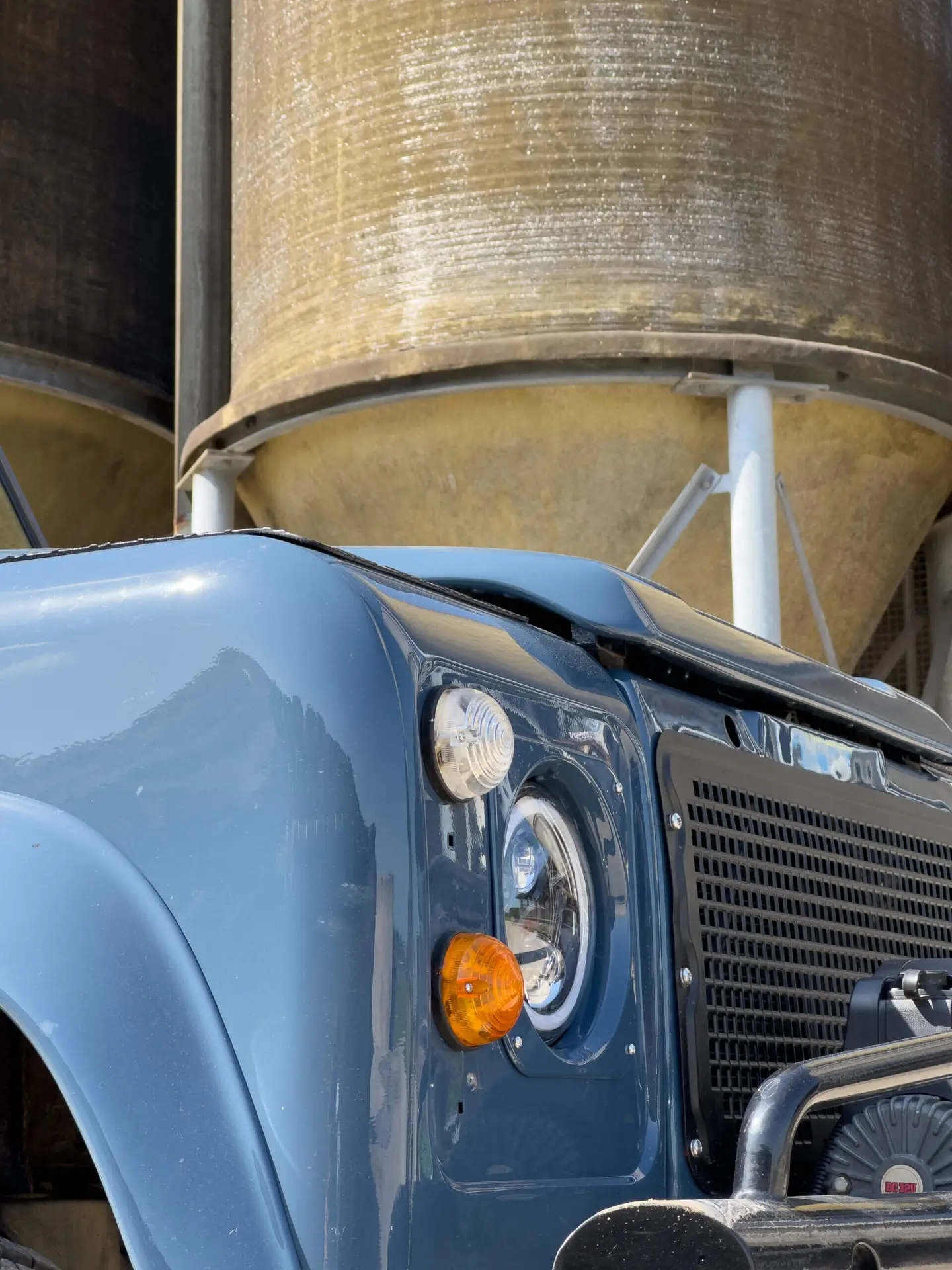
Welcome to this guide on the 2.8 GTV engine parts. While many parts are shared
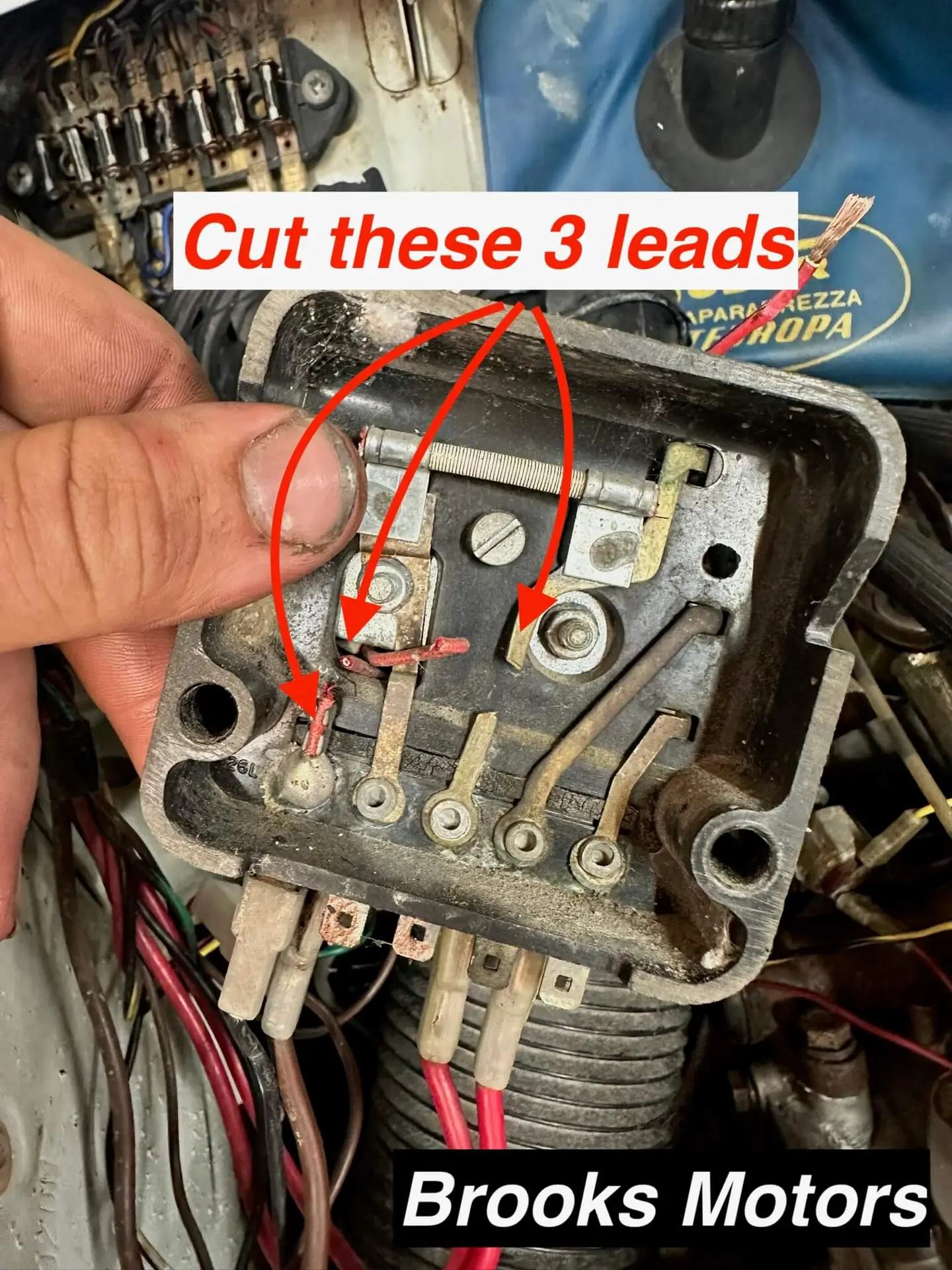
Converting a Lucas RB106 Voltage Regulator to an Alternator Dummy Box The Lucas RB106 control
00 316 38 37 66 91
[email protected]
Broekseweg 100, 4231VH
Meerkerk, The Netherlands
KvK: NL81356773
BTW: NL862055489B01